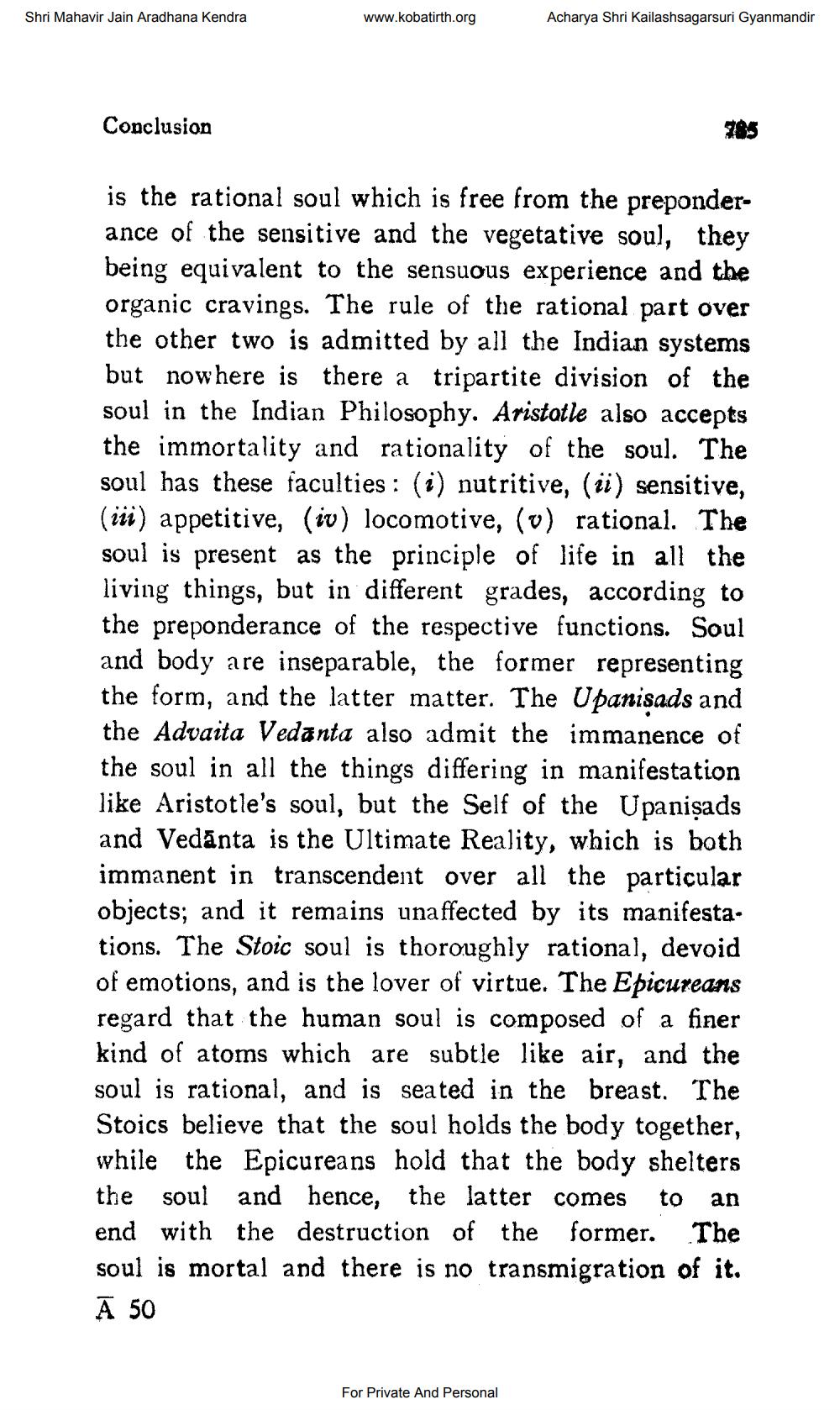________________
Shri Mahavir Jain Aradhana Kendra
Conclusion
www.kobatirth.org
Acharya Shri Kailashsagarsuri Gyanmandir
For Private And Personal
785
is the rational soul which is free from the preponderance of the sensitive and the vegetative soul, they being equivalent to the sensuous experience and the organic cravings. The rule of the rational part over the other two is admitted by all the Indian systems but now here is there a tripartite division of the soul in the Indian Philosophy. Aristotle also accepts the immortality and rationality of the soul. The soul has these faculties: (i) nutritive, (ii) sensitive, (iii) appetitive, (iv) locomotive, (v) rational. The soul is present as the principle of life in all the living things, but in different grades, according to the preponderance of the respective functions. Soul and body are inseparable, the former representing the form, and the latter matter. The Upanisads and the Advaita Vedanta also admit the immanence of the soul in all the things differing in manifestation like Aristotle's soul, but the Self of the Upanisads and Vedanta is the Ultimate Reality, which is both immanent in transcendent over all the particular objects; and it remains unaffected by its manifestations. The Stoic soul is thoroughly rational, devoid of emotions, and is the lover of virtue. The Epicureans regard that the human soul is composed of a finer kind of atoms which are subtle like air, and the soul is rational, and is seated in the breast. The Stoics believe that the soul holds the body together, while the Epicureans hold that the body shelters the soul and hence, the latter comes to an end with the destruction of the former. The soul is mortal and there is no transmigration of it. Ā 50




